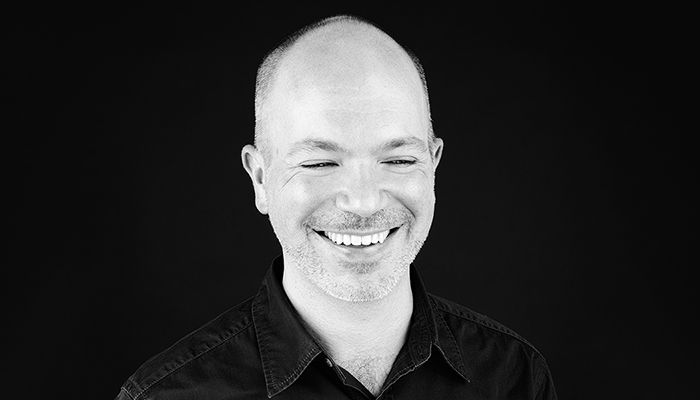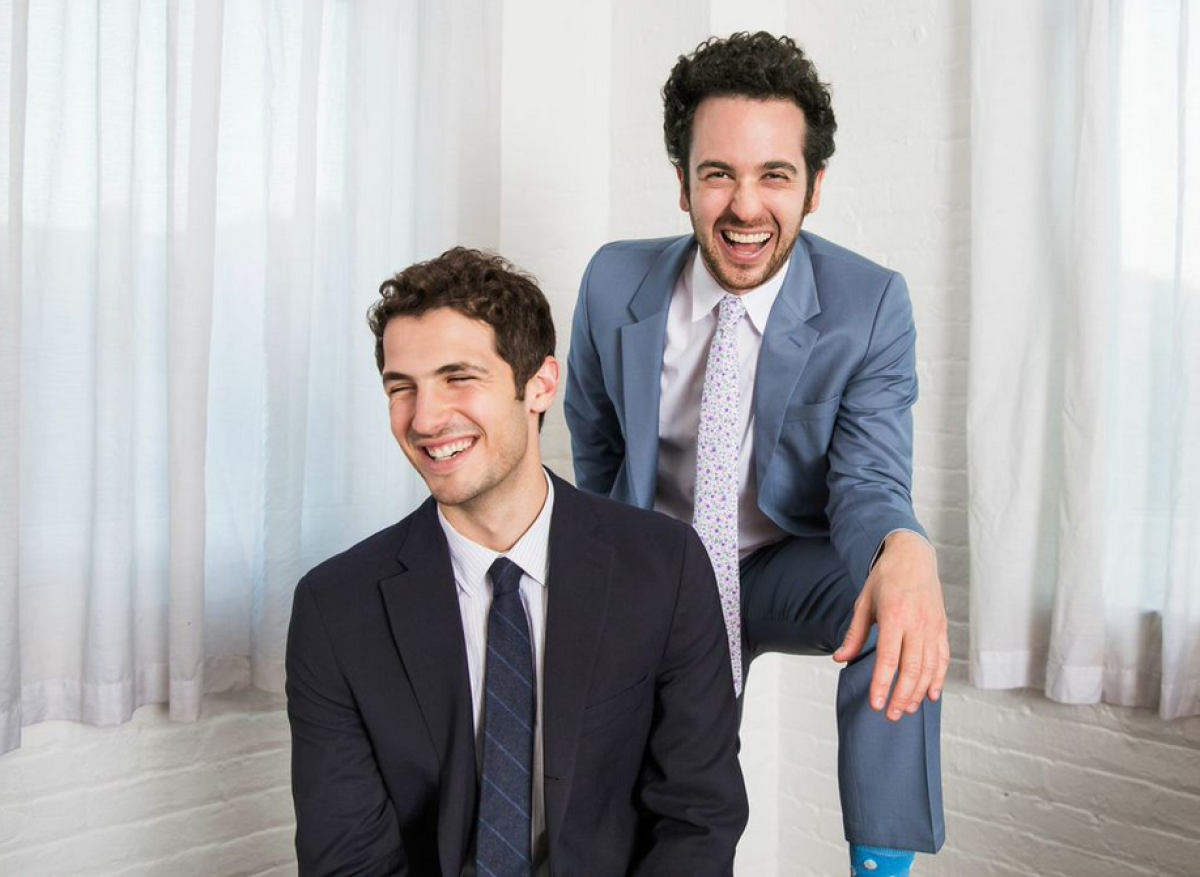
By now you may have heard: Music critic Sasha Frere-Jones is leaving The New Yorker for Genius, the lyric annotation site that was formerly known as Rap Genius. Or, in other words, Frere-Jones is leaving perhaps the most prestigious gig in music criticism for—in New York Times parlance—"a start-up." Wait: where? Who? Why?
Cue media-world anguish, puzzling over how a legacy-media journalist might leave such a cozy perch for a shakier (and controversial!) annotation-site-in-progress, which doesn't even promise any bylines. But to Frere-Jones, that's exactly the logic: If there's no better job in music criticism, why not step outside the conventional boundaries of music criticism?
The writer elaborated on his reasoning in a conversation with Newsweek. Also on hand were Genius co-founders Tom Lehman and Ilan Zechory (a third founder, Mahbod Moghadam, resigned amid scandal in May), who touted their hire. Zechory called Frere-Jones "a truly brilliant writer" and said he would be "working with artists and with the Genius community to create this permanent museum of songs." Lehman added, "For us the idea of taking someone who has so much power on the platform of The New Yorker and giving him a platform that's 100 times more powerful and more timeless was just an intoxicating notion to us."

The interview with Frere-Jones has been lightly edited for length and clarity.
You've had one of, if not the most, enviable jobs in music criticism. Why is now the time to jump ship and take a radically different job?
That kind of job in criticism, there's not, like, one next to it or one above it. It was a dream, and you don't want to wear that out. You want to move when the time is right to something that's equally exciting but totally different. That was sort of my plan and dream when I began the job: "I know this will be the apex of this kind of work." Over the years I had been talking to various people and nothing seemed all that exciting, and then this seemed like such an amazing tool that I really wanted to take the chance and try it.
What exactly will you be doing on a day-to-day basis that you can't do at The New Yorker?
My main role is to just really build up the community, establish a baseline of quality, take the old lessons about precisions and correctness, and bring that into sync with how people move information around. Take some of the old, great rules and try to bring them into sync with how people interact on the Internet and add comments.... It's both permanent and impermanent. It's permanent because it's that page. But it's impermanent in that people will always be adding to it and correcting and contributing and making it better, which is a thing that's very hard to do with any traditional piece of journalism, because it doesn't really work that way. That's a thing you can't do at, I don't think, any magazine, really.
Will you be writing criticism anymore?
Oh yeah. Probably I'll be writing stuff that people haven't heard from me before, but I don't know exactly where or when. I do want to focus on this for a second. But I'm not going to stop writing ever. Never, ever.
What will you most miss about working at The New Yorker?
Oh, God. I'll miss pretty much every single person. That's a really emotional question. There's one thing that The New Yorker teaches better than any other place in the world, which is how to be clear, how to be concrete, how to make sure as best you can that your facts are right, and how to really respect both the subject and the idea. There's no cleverness for its own sake. You are trying to do justice to both the subject and whatever it is you think you are trying to talk about. You want to sharpen that and sharpen that and work until you get the best thing you can. In some ways, I won't miss it, because I'm going to hope to bring that over to the site.
What did you think of some of the reactions in the media world to your job news?
There were several, so you'd have to be more specific.
What did you think of the Times headline, for instance?
To be perfectly honest, I forget what the headline is [laughs]. What was the headline?
"Pop Music Critic Leaves The New Yorker to Annotate Lyrics for a Start-Up."
Yeah, that's not exactly accurate. The point is not to have me annotating all these lyrics myself, by a long, long shot. They've been around a minute. They're not really a startup. They've gone through several rounds of changing their ideas and changing their focus. But we all know that heds and deks aren't even written by the writers. Especially in the Twitter age, they're very unhelpful, because they go beyond reductive and they sort of distort what's actually going on. Although I like the piece—I thought the piece was fair and accurate—I didn't like the headline.
A lot of other writers and bloggers were lumping you in with a range of legacy-media journalists who have jumped ship for digital companies and startups, insinuating that it's motivated largely by money.
Yeah, that's just nonsense. I'm not even that smart. I just like the people that I met. Chris Glazek, who used to be at The New Yorker, who I really respect and like—he just called me and told me what they were doing and I got more and more interested as I met them. I don't think anybody who's really looking to build a career and keep the trust of the people who've been reading his or her work, you can't do something for reasons of money. Cash grabs don't work. You end up falling down on your face.
It's really, really simple. I like the people that I met. And I think at heart the project is in many ways quite simple. It's giving lyrics a safe place to live, raising the standards for all the annotations, bringing in different layers of meaning. Frankly, if you look at a page, I'm very myself suspicious of that whole new tech rocket science, like, "We're building something that the whole world has never seen." That's partially true because I think Genius has technically made some innovations that are great, but at the end of the day, we're just trying to put in one very user-friendly place a whole bunch of different voices that really, really bring out what's going on in a song or a book or a fact.
Can you speak to some of the rumors that have flown around about bro culture at Rap Genius and some of the scandals that have taken place?
That's the easiest one of all. Those pieces actually read a little bit like science fiction to me. I haven't met a single bro. The people I started talking to at the company were largely women. I don't know about any of that stuff that happened three or four years ago. I didn't meet those people. It's another time and another world for me. That's not who I met, and that's not what I met.
Who do you think should replace you at The New Yorker, if you had to name names?
Oh, come on [laughs]. That would be the stupidest question in the world to answer. I love a lot of writers. I'm not really being coy here. I don't know. They have to fit into what The New Yorker does. And they have to want to do it. It's a beautiful but a very intense job. You have to be able to make some sincerely different judgment calls. You don't write all the time, the way a blogger would. You're crafting these columns that come out definitely less frequently. The website changed that, so your voice is out there more than it used to be, but you're creating these things that are very much legacy pieces. You write something that people will refer to. So figuring out how to do that and also be up to date, it's a bit tricky.
I'm fascinated to see who they get. I think a lot of people could do it. I just don't know who it's going to be. It's exciting to not know. I'm dying to see who it is. David [Remnick] is pretty good at spotting the right person.
I was always impressed with how fluently you wrote about a very wide range of different artists and genres. Is there any particular piece or a few pieces you're especially proud of?
I'm going to punt slightly now, because that's exactly what my last piece in this chunk of work [will be]. The endcap will be a post this week just about that.
One of the very first conversations, if not the first, I had with the editors at The New Yorker was, I don't want this column to have a theme or a tendency. I mean, you can't help it because you're a human being and there are things that you like more than others, but I wanted to cover as much as we could, to give people an idea of everything to happen in the year in 15 or 18 slices, which is how many columns came out.... I don't know that I was able to pull this off, but I wanted people, ideally at the end of the day, to not know "what does this guy really like more than anything else?"
Is there anything else you want to mention about the new gig?
The coolest part of this will be more visible in three months, six months, a year, when more and more voices are on the site. I likened it a little bit to, you know, that moment with Twitter. Twitter was a thing where everyone was dubious of it, they didn't want to get on it, they thought it was trivial. And then somebody they respected got up and said something. And then all of a sudden: boom! Everybody got on, and they all wanted to be clever and smart or linked to things they care about or get mad or whatever.
I'd like to see that happen with this site, where people who think in some way that they are excluded or it was doing something they don't like, they get up in there and they throw their weight behind some annotations and it really begins to expand. Then it's just a tool like any other.
Uncommon Knowledge
Newsweek is committed to challenging conventional wisdom and finding connections in the search for common ground.
Newsweek is committed to challenging conventional wisdom and finding connections in the search for common ground.
About the writer
Zach Schonfeld is a senior writer for Newsweek, where he covers culture for the print magazine. Previously, he was an ... Read more
To read how Newsweek uses AI as a newsroom tool, Click here.






